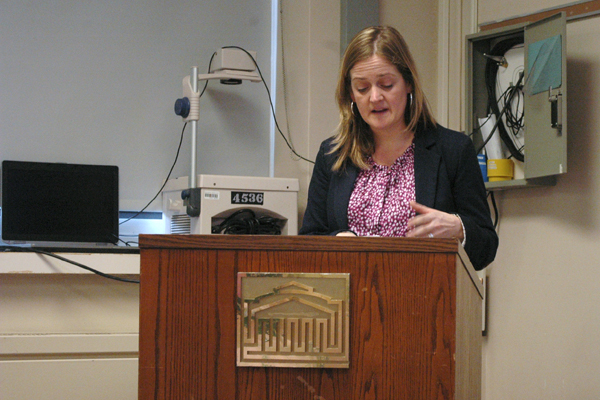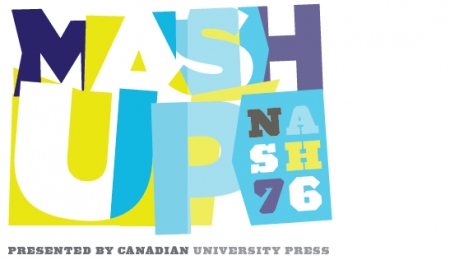Pink Ribbons Inc. questions the value of awareness campaigns
Photo by Tina Wallace
Millions of dollars are raised each year across North America in the name of breast cancer research and awareness. Pink Ribbons Inc., in both its movie and book version, questions the value of the pink ribbon movement.
“The perky image of the disease is, at this point, doing more harm than good,” said Samantha King in the film inspired by her book of the same name, Pink Ribbons Inc.
The author and associate professor at Queen’s University spoke at the University of Ottawa on March 28 as part of the Feminist Café speaking series, followed by a screening of the film, which was funded by the National Film Board of Canada.
As an academic, King didn’t expect her book or the film to have such a wide audience. However, when the film was released in October 2011, it coincided with the controversy inspired by breast cancer organization, Susan G. Komen severing its ties with Planned Parenthood, which provides breast screening for low-income women.
The film opens at a Susan G. Komen Race for the Cure event, capturing the festival atmosphere, the sea of pink-clothed participants, and the extensive range of products available — ostensibly with partial profit going to research.
Cutting to stark one-person interviews with breast cancer patients and survivors, as well as medical professionals and activists, then back to various fundraising events, the film gives a contrast between the pink-washed public relations version of breast cancer and the cold reality of those suffering from the disease.
The film is careful not to criticize the participants in the fundraising events — many are survivors or family members of survivors — but questions the practices underlying consumer-oriented philanthropy: the money spent on advertising, rather than research, overlapping studies and gaps in research, and lack of accountability for where the money is going.
In the 1940s, the chance of getting breast cancer was one in 22, but by 2011 it was one in eight. With all of the money raised, the research isn’t lowering the risk of developing the disease, and the film suggests this is because private companies conducting cross-marketing campaigns are overseeing the research.
For example, the film points out that studies may not be pursued if there are indications that car exhaust is an environmental factor in developing breast cancer, but a large part of the research funding comes from a cross-marketing campaign with Ford. Considering the array of products involved in pink ribbon campaigns, there are potential conflicts of interest with nearly any item you can purchase at a local Wal-Mart.
After the film screening, King said she has found her students often say they were raised to believe that raising money is the way to deal with social issues. She hopes her book and the film have the power to change the conversation.
“If people knew what was happening they would be really pissed off,” said Barbara Brenner, an activist interviewed in the film. “They should be.”





